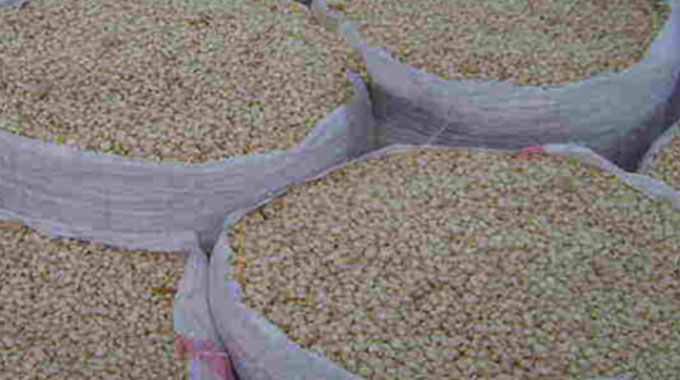
We are now in the middle of the lean season in terms of food supply in the country.
Running from October of every year to harvest time around April of the following year, this is the period when vulnerable households will be at their most food-insecure. Under normal circumstances, their household food stocks from the prior year’s harvest would have run out or running low, so they would be in need of food aid. This time the lean season looks to be substantially leaner than many previous lean periods given the drought that affected the country in the 2018/19 farming season, rendering more than seven million people hungry including thousands in urban areas.
To ensure that the seven million-plus people are well-fed despite last year’s drought, the Government is importing huge consignments of relief maize and has also sought the assistance of development partners.
Unfortunately, it has emerged that the National Railways of Zimbabwe (NRZ) has not been fast enough to transport the imported maize from ports in Mozambique. The NRZ’s operational challenges are well known and longstanding, thus not many people expected the utility to overcome those constraints overnight to be able to provide adequate transport to move the emergency stock into the country for distribution to the hungry. Therefore, authorities have made a timely decision to rope in haulage trucks to assist.
The Government ordered enough maize to fill the supply gap and ships are docking at Mozambican ports with grain from a huge order supplied by Tanzania, but our sister paper, The Herald reported yesterday that the railways have not been moving the orders fast enough, hence the addition of road transport, especially on the Beira run.
About 1 770 tonnes of maize were sent to Harare from Beira using both major Mozambican ports of Beira and Maputo and buying in South Africa for delivery via Beitbridge.
Zimbabwe’s Ambassador to Mozambique, Lieutenant-General (Retired) Douglas Nyikayaramba was concerned, just as we all are, about the NRZ’s incapacity to handle the huge logistical task.
“The current challenge is on the slow turnaround of wagons from Bulawayo to Maputo,” he said. “To date, only 35 wagons were reported to be at Chicualacuala destined for Maputo, but unfortunately they were without their tarpaulins.
“Currently, 59 wagons (1 770 tonnes) have been dispatched to Harare via the Beira route while a balance of 197 wagons (5 910 tonnes), is yet to be railed from Beira.”
To assist the NRZ, he said road transport will now be called in with a total of 98 trucks having been dispatched to Harare with a balance of 233 trucks to complete the whole consignment still to be loaded and dispatched.
Rail is the most appropriate mode of transporting cargo like maize not only because its charges are normally lower than road haulage but also that it is a bulk carrier, much more than trucks. The country should have been relying on the NRZ but given its challenges road transportation has been enlisted.
The millions who are hungry across the countrywide should be encouraged by the Government’s quick response to what could have degenerated into an unnecessary, new hindrance to speedy transportation of relief food to them.
Amb Nyikayaramba made mention of the balance of 233 trucks after 98 had been signed up. This represents a huge gap of vehicles still to be secured to get more maize flowing into the country. We therefore, urge authorities to intensify their efforts to get more trucks so that we have the full complement on the road for this very urgent job.
It is possible that more trucks will have to be added to the 331 as we foresee more ships docking at Beira and Maputo with more maize up to harvest time next month into May. Yes, the farming season is unlikely to be as bad as had been envisaged during the October to December 2019 and January 2020 dry spell amid the rains that have been falling in recent weeks but we also recognise that the harvest will not be a bumper one. As a result, there is a possibility that the NRZ and trucks will be busy right up to April 2021. We hope that the logistical arrangements will be improved to speedily ferry the maize arriving now and into the future so that our people don’t go hungry when food has been bought.
While we are happy that the trucks are helping out, we regret that this represents lost potential business for NRZ yet the parastatal desperately needs as much cargo business as possible so that it generates more revenue that will assist in its turnaround efforts. This tells us how urgent a task it is for this very essential national asset to be brought back to life.
